Natural Home Remedies For Grey Hair
By Dr Smita Barode +2 more

Get,

to manage your symptom
Get your,


4 Cr+ families
benefitted

OTP sent to 9988776655



You’ve successfully subscribed to receive
doctor-approved tips on
Whatsapp

Get ready to feel your best.

Hi There,
Download the PharmEasy App now!!


Register to Avail the Offer
Send OTPBy continuing, you agree with our Privacy Policy and Terms and Conditions

Hi There,
Sign up on PharmEasy now!!
Trusted by 4 crore+ families

OTP sent to 9988776655



You have unlocked 25% off on medicines




Code: NU25
By Dr Smita Barode +2 more
Table of Contents
Hairstyle, colour, and length of hair play an essential role in people’s self-perception and physical appearance. Hair greying is one of the initial and most noticeable signs of human ageing. Hair greying, also known as canities, is a process of chronological ageing that affects people regardless of their gender or race. The term premature greying is used when greying occurs before the age of 20 in Caucasians, before 30 in Africans, and before 25 in Asians1.
Premature hair greying (PHG) or canities has a considerable detrimental impact on the affected individual’s appearance and self-esteem, considering the important function of hair in day-to-day social life. It is often thought of as a sign of old age and loss of health.

Did You Know?
Melanocytes are cells within each hair follicle that produce two basic pigments called pheomelanin or eumelanin, according to your DNA. Eumelanin is mostly present in brown and black hair, whereas pheomelanin is found in red and blond hair. The pigments produced in scalp hair degrade more slowly than the melanin that colours the skin. This allows the hair to maintain its colour as it grows for an average of 3.5 years2.
Grey hair develops as the number of melanocytes decreases. But the time when those cells begin to decrease varies from person to person. Here are some causes for hair greying:
Specific genes related to hair greying have been identified. One study3 identified the gene responsible for controlling, producing and storing melanin. It was found that those with PHG had a family history of PHG and had a genetic tendency to develop allergic diseases like asthma or eczema.
Individuals who are overweight or obese are more likely to develop grey hair4.
It was found in a study5 that smokers were at a higher risk of developing premature hair greying than nonsmokers. Although the mechanism behind this could not be found, it was suggested that smoking could increase oxidative stress, which can damage melanin-producing cells.
Stress can speed up the greying process. Stresses that are responsible for a fight-or-flight response might deplete the reserve of stem cells present in hair follicles that can be transformed into pigment cells when new hairs form6.
It was observed in a study7 that a deficiency of vitamin B12 can lead to PHG, which can be reversed when the vitamin is supplemented. Dairy products and meat are common natural sources of vitamin B12. This explains why a vegetarian diet could be a reason for developing PHG. It also might be difficult for older persons to absorb vitamin B12 through digestion.
According to a study1, it was found that diseases like vitiligo and alopecia areata can lead to premature greying. Vitiligo develops when cells that produce melanin stop functioning or die, causing loss of skin colour in patches over the body that commonly grow over time. In a few cases, it also leads to loss of hair colour. In alopecia areata, there can be a sudden loss of colour of hair, which might lead to more noticeable grey hair.
Other conditions that cause hair greying are:
Frequently, patients in their late 30s and 40s express concerns regarding premature greying. In such circumstances, counselling is necessary to educate them that greying is a distinctive aspect of ageing, and we must embrace it. In such instances, available safe colouring options can be considered since reversing natural hair colour may not be feasible.
Dr. Arpit Verma, MBBS MD (Pharmacology)
The average age of onset of premature hair greying ranges from 2 to 22 years, with the earliest age of onset being 2 years.
Certain remedies are known to stimulate pigmentation of hair. These preparations help restore the natural hair colour and may prevent further greying. Some remedies for dealing with grey hair are:
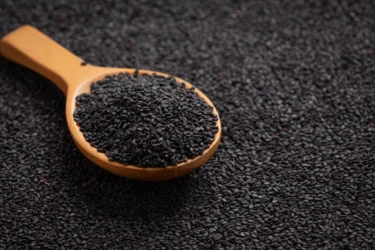
Sesame seeds, especially the black sesame, are known to blacken the hair9. Hence, they can be applied to white hair. Eating some black sesame seeds twice a week may help to slow down or even reverse the hair greying process.
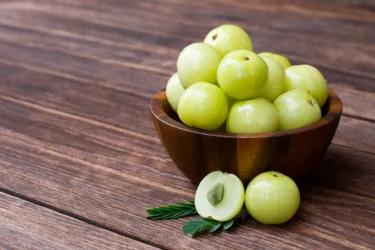
Amla enriches hair pigmentation. Dried fruit of amla and coconut oil can be boiled together till they get charred and used for hair greying. You can massage your hair with this amla oil and drink amla juice regularly to help control the premature greying of your hair.
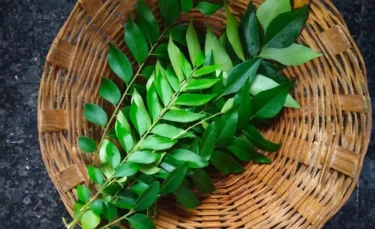
Using curry leaves is considered beneficial in traditional practices for preventing greying. Curry leaves crushed into a paste when mixed with yoghurt can be applied on hair twice a week for potential benefits.
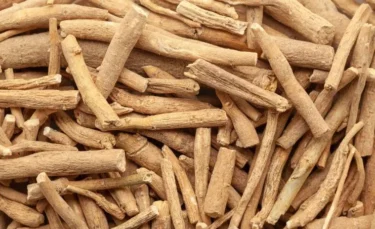
Ashwagandha is traditionally believed to improve blood circulation and help delay premature hair greying. Ashwagandha root powder, along with Brahmi powder, may be formed into a paste and used as a mask. This mask can be massaged on the scalp and washed later for benefits. Consuming ashwagandha tea may also be supportive.
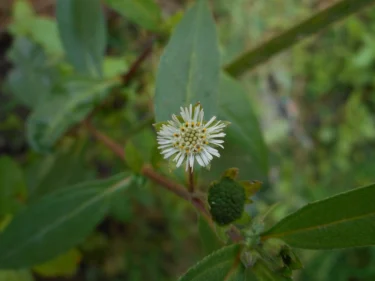
Bhringraj (Eclipta alba) is traditionally known as a “king of herbs” for hair health10. Leaves of Bhringraj may be soaked in any oil overnight, and this oil may be applied to hair.
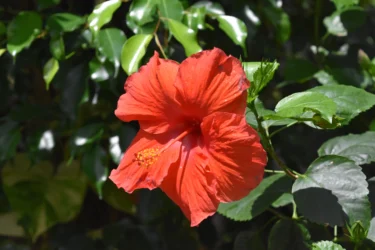
Hibiscus contains vitamins C and A and iron. Paste of its flower, along with any oil when applied to hair, may help in managing grey hair by blackening the hair.
Asking a dermatologist or trichology expert for assistance is the optimal approach to managing premature greying of hair, as identifying and tackling the root cause is crucial. Home remedies may not be universally successful in treating every case of greying.
Dr. Arpit Verma, MBBS MD (Pharmacology)
Also Read: Effective Home Remedies For Frizzy Hair
Early greying of hair can be treated by obtaining a proper diagnosis and treatment plan.
Also Read: Best Home Remedies for Hair Growth
Premature greying of hair can have a negative impact on young people’s self-esteem, particularly on those with darker hair types, due to the easy sight of grey hair. Therefore, long-lasting and efficient management of grey hair is essential. Today, there are several home remedies like oak galls, barley, onion juice, etc., that are known to be effective in dealing with grey hair.
Even with the proper understanding of the causes of grey hair, the exact reason for its premature onset is not well studied. Hence, satisfactory management for its reversal remains indescribable as of today.
Also Read: Home Remedies To Help Reduce Dandruff Naturally
The pigment called melanin, which gives colour to the skin and eyes, is also responsible for determining the hair’s colour. Hair colour is determined by the quality and combination of melanin.
Grey hair is melanin-depleted hair, whereas white hair is completely devoid of it. This is partly due to a decrease in the number of stem cells that mature into melanin-producing cells. The cells may become worn out, damaged, or lose the support systems that are responsible for keeping them functioning. Genes play a role in melanin production since they help regulate it. There are multiple causes for developing PHG, such as a poor diet, genes, vitamin deficiencies, obesity, smoking, stress and some diseases.
Natural and synthetic hair dyes or colours are available. Indian gooseberry, false daisy, and henna are popular natural colours that are usually safe to use but necessitate frequent touch-ups due to weak colourants. There are two types of synthetic hair dyes- oxidative (use an oxidising agent like hydrogen peroxide to produce hair colour) and non-oxidative (do not contain an oxidising agent)
Deficiencies in vitamins like B12, biotin, folic acid, and vitamin E may contribute to premature hair greying. A doctor can guide appropriate supplementation.
Compounds like calcium pantothenate, green tea extract, phytoestrogens, and para-aminobenzoic acid may be taken orally under a doctor’s guidance to manage grey hair.
Disclaimer: The information provided here is for educational/awareness purposes only and is not intended to be a substitute for medical treatment by a healthcare professional and should not be relied upon to diagnose or treat any medical condition. The reader should consult a registered medical practitioner to determine the appropriateness of the information and before consuming any medication. PharmEasy does not provide any guarantee or warranty (express or implied) regarding the accuracy, adequacy, completeness, legality, reliability or usefulness of the information; and disclaims any liability arising thereof.
Comments

Leave your comment...
You may also like
Comments